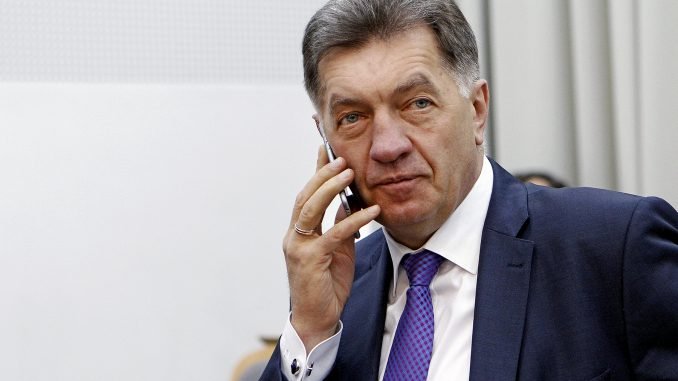
According to the prime minister, one of the most important things that happened in Lithuania in 2015 was “the introduction of the euro on January 1, 2015. The introduction was very successful and it would probably be hard to find another country where, according to the Eurobarometer, public approval [of the euro] was 68% just before the introduction and it had even reached 72% at one point.”
Another great achievement of the year, according to Butkevičius, has been Lithuania’s advances towards energy independence. “Lithuania has become energy independent in 2015. When talking about the energy sector, not only the gas sector was diversified in 2015, but also electricity connections with Sweden and Poland were finished, which is historic, we had never had such interconnections,” Butkevičius says.
The government has drafted extensive reforms to the Labour Code which, according to Butkevičius, will boost Lithuania’s competitiveness. The bills are still making their way through parliament.
“The third very important factor, which will allow to boost Lithuania’s competitiveness and wages in the country, is the new social model and it is unfortunate that it was not adopted by the end of 2015,” said Butkevičius.
Speaking about foreign affairs, the prime minister highlighted Lithuanian exporters’ move away from the Russian market and search for alternatives following the EU’s sanctions on Moscow.
“Lithuanian exports to the US have grown 5.2%, to EU countries, 7.1% this year,” Butkevičius said. “For comparison, export of Lithuanian food products to Russia has decreased 54% and overall exports to Russia have decreased 41% over the first nine months of this year.”
Commenting on key tasks for 2016, the prime minister said: “My main objective is to adopt the social model in March.
“The success path for Lithuania lies in the skilled labour force. We must pay attention not only to consolidating our universities, but also to nurturing creativity from school level. […] We have to talk about the quality of education in schools, colleges and universities, because Lithuania has no right to talk about cheap labour force any more. We need to talk about skilled labour.”

Be the first to comment